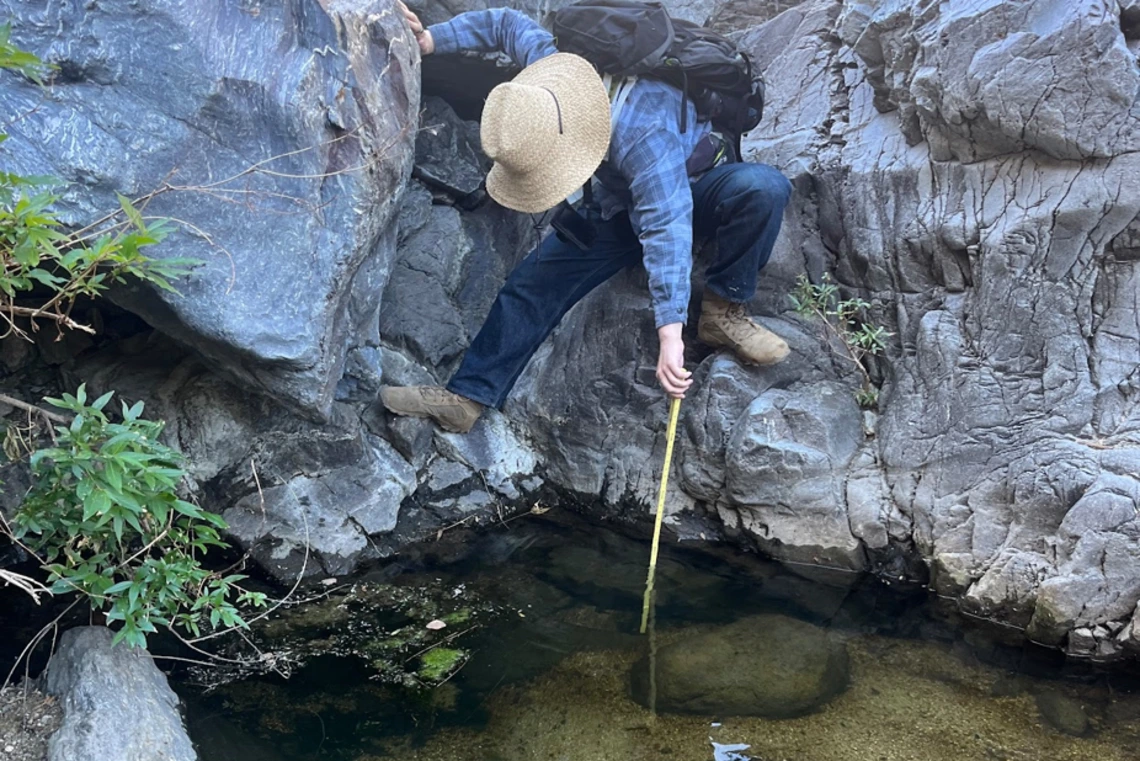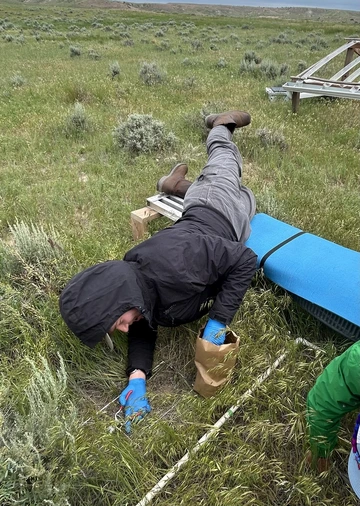Oskar Anderson: Engaging communities of plants and people

Oskar Anderson is a natural resources major at the University of Arizona with a strong passion for conservation and land management. His academic journey has been shaped by early outdoor experiences and hands-on involvement in restoration and environmental organizations.
In this Q&A, he shares how his upbringing fostered his love for ecology, highlights the skills he’s gained through internships and volunteer work, and reflects on the importance of community in environmental stewardship.
How have you been involved in environmental or conservation activities as a student?
I’ve had a real abundance of opportunities to get involved and get outside during my education. Back at Pima Community College, I was encouraged to help out with park cleanups and invasive buffelgrass removal, and that eventually escalated into organizing my own volunteer restoration events on their campus. Here at the U of A, I’ve found a great community working as treasurer in the Tierra Seca Rangeland Management Club and helping our sister Fish and Wildlife Club. Through these student organizations, I’ve gotten to connect with people on campus who are pursuing natural resources work and encourage others to come see what we do.
How did your upbringing or early experiences influence your interest in wildlife and ecology?
I was raised homeschooled, so I remember a lot of my earliest learning experiences being outside with my family. Hearing local Tucson voices like Mr. Nature and Petey Mesquitey got me excited to observe the world around me, and meeting professionals at the library exposed me to the idea that monitoring ecosystems was something you could do for work. Having that initial interest kept me hooked and eventually led to me getting to study our environment and the relations within it.
What skills or knowledge have you gained from internships, volunteer work, or research experiences?

Internships have been the most valuable part of my education in field, data, and people work. Getting to work as an Earth Grant intern with Pima County took me from limited monitoring experience to overseeing and reporting on my own project planting endangered Huachuca Water Umbel. Working with these plants in a public park taught me outreach through conversations with birdwatchers and other interested community members. I got to meet new communities (mostly of plants) and learn about their management last summer with Thunder Basin Grasslands Prairie Ecosystem Association in Eastern Wyoming. Both of these experiences prepared me for the long field days of careful teamwork that applied ecology requires.
How has working with or mentoring other students shaped your approach to environmental issues?
Tabling and engaging with students about ecology has reinforced something I learned as a math tutor: people will share what they know if you’re willing to ask and listen. Most people have had a recent, personal experience that connected them with the environment, and that’s the best place to meet them! The things that other people share with us about the land should never be discounted, and I think a diversity of input is our best hope for developing real solutions and improvements.
What lessons from your experiences will guide your future career or academic goals?
I’ve learned through both classwork and extracurriculars that I like to be acknowledged as a worker. The field work that I’m most interested in, with its long days in the sun, is a lot of labor and I appreciate it most when we acknowledge that. Planning to work efficiently with the weather and time available is something very valuable in a day of research, and I’m trying to prioritize positions where I can do that. Going forward, my goal is to keep working for land management at the ground level while leaving myself enough time to rest and connect with the environment outside of my career.
Why do you think it’s important for students to get involved in environmental programs, even if it’s not their major?
Studying the natural world is studying our own history and future. Humans are as much a part of the environment as any grass or insect, and the outsized impact that we have is both empowering and sobering to consider. Learning our place within the vast webs of relationships that allow life to continue helps us realize compassion for all beings. Together, we should listen to the world around us to help us be present and considerate in whatever else we do.
Where have you found community or support while pursuing environmental or conservation work?
I’ve received a lot of support from my mentors, peers, and fellow enthusiasts. One of my favorite things to do is use citizen science programs like iNaturalist to exchange pictures and observations about the environment. This type of media really captures what I love about camping and field days with friends, and I’d encourage everybody to get out for plant/bird/rock/herp walk while the weather is good and show each other what they see!
